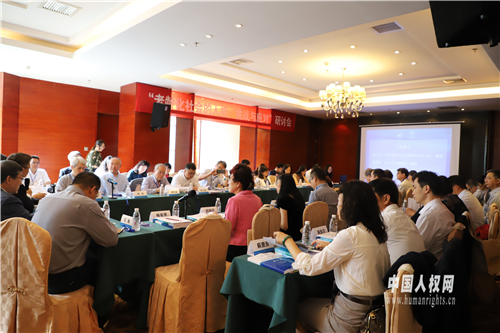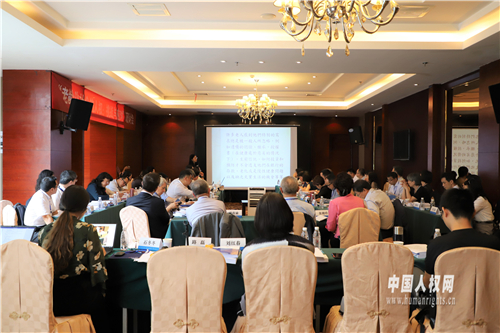YNU and Renmin University of China hold Cross-Straits Forum on Human Rights

The 4th Cross-Straits Forum on Human Rights hosted by the Law School of Yunnan University (YNU) in partnership with the Law School and Research Institute of Human Rights at Renmin University of China begins on July 13 in Kunming, capital of Yunnan province. [Photo/humanrights.cn]
The 4th Cross-Straits Forum on Human Rights hosted by the Law School of Yunnan University (YNU) in partnership with the Law School and Research Institute on Human Rights at Renmin University of China began on July 13 in Kunming, capital of Yunnan province.
This year’s human rights forum focused on dealing with problems related to an aging population.
The event brought together more than 60 scholars and experts from dozens of universities, social organizations, and research institutes in both the Chinese mainland and Taiwan.
The opening ceremony was chaired by Lu Hainan, secretary-general of the Research Institute of Human Rights at Renmin University of China, and was addressed by Han Dayuan, director of the Research Institute of Human Rights at Renmin University of China, Dong Baocheng, vice-president of Soochow University (Taiwan) and Gao Wei, dean of the Law School of YNU.
Han said that aging populations have become one of the major challenges facing mankind, adding that the forum provided a platform for experts from across the straits to discuss and voice their opinions.
Dong noted that people from across the straits should work together to strengthen human rights protections as people’s material needs have been basically met.
Human rights are the core value of both the Chinese mainland and Taiwan, and scholars from both sides should put aside their differences and seek common ground, he added.
Gao extended a warm welcome to attendees of his speech and briefed them on what YNU had done to further human rights protections.
During the two-day event, representatives also discussed how to address the challenges brought about by an aging population.

The event brings together more than 60 scholars and experts from dozens of universities, social organizations, and research institutes in both the Chinese mainland and Taiwan. [Photo/humanrights.cn]

